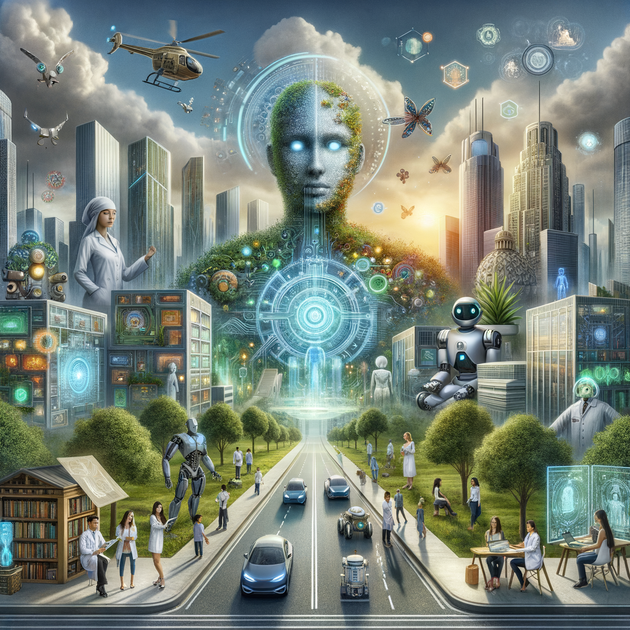Are We on the Verge of AI Surpassing Human Intelligence?

Imagine a world where machines possess the unparalleled cognitive abilities that rival or even surpass those of humans. It’s a concept that has intrigued scientists, philosophers, and the general public alike. But will AI ever be smarter than humans? The answer lies at the intersection of advancements in technology, deep understanding of human intelligence, and ethical considerations.
What Advancements in AI are Needed to Surpass Human Intelligence?
For AI to become profoundly smarter than humans, specifically to achieve Artificial General Intelligence (AGI), several significant advancements must occur. These span across various domains, from technology to ethics:
1. Understanding and Modeling Human Intelligence
-
Cognitive Modeling: Developing AI that rivals human intelligence necessitates a deep understanding of human cognition. This means unraveling how humans process information, make decisions, and learn. Advances in cognitive science and neuroscience are crucial for providing the insights needed.
-
Emotional and Social Intelligence: AI must grasp and interpret human emotions and social cues. This implies mastering the complex and nuanced aspects of emotional and social intelligence that are intrinsic to humans.
2. Advanced Machine Learning Techniques
-
Learning Efficiency: Unlike current AI systems that require vast amounts of data, humans can learn from a handful or even a single example. To rival human intelligence, AI must evolve to learn efficiently from fewer examples.
-
Generalization and Adaptability: AI’s capability to generalize learning from one domain to another and adapt to new situations without explicit reprogramming is vital. This involves progress in transfer learning, meta-learning, and other flexible learning methodologies.
3. Autonomous Reasoning and Problem Solving
-
Complex Decision Making: Just like humans, AI needs to navigate complex, ambiguous situations and make decisions with incomplete or misleading data.
-
Creative and Strategic Thinking: Beyond problem-solving, AI would need to demonstrate creativity and innovation, proposing new ideas and strategies independently.
4. Ethical and Value Alignment
-
Ethical Reasoning: AI must navigate ethical dilemmas and align its decisions with human values. It requires interdisciplinary collaboration with philosophers and ethicists.
-
Safety and Control: Advanced AI must remain under human control, solving the “alignment problem,” ensuring AI goals resonate with human goals and values.
5. Computational Resources and Infrastructure
-
Processing Power: The computational needs for AGI are extensive. Continued advancements in hardware, including quantum computing, might be essential to handle the complex processing requirements of AGI.
-
Data and Privacy: AI’s development relying on human-like experiences raises significant concerns about data privacy and ethical data usage.
The journey to create AI capable of matching or surpassing human intelligence is not merely technical but also deeply philosophical and ethical. It will require an interdisciplinary approach, merging insights from various fields including computer science, cognitive science, neuroscience, and philosophy.
How Long Might It Take for AI to Surpass Human Intelligence?
The timeline for achieving AGI, where AI matches or exceeds human intelligence, is speculative and subject to debate among experts. Predictions depend on various elements, from technological breakthroughs to ethical considerations:
Optimistic Estimates
Futurists and technologists like Ray Kurzweil suggest that AGI could be achieved as soon as 2029, given the rapid advancements in machine learning and computing power. These forecasts often rely on the current momentum in AI research.
Pessimistic or Cautious Estimates
Others believe AGI is decades away, citing the immense complexity of human intelligence and the significant unresolved technical and ethical issues. These experts advocate for a more measured approach to AGI development.
Surveys Among AI Researchers
Surveys among AI researchers display a wide range of predictions. For instance, a 2016 AI Impacts survey indicated a median estimate of 2040-2050 for AGI, with substantial variation among respondents. The diversity in predictions highlights the high level of uncertainty.
The Role of Breakthroughs
Unforeseen breakthroughs in AI or computational technology, like quantum computing, could dramatically influence the timeline. Similarly, ethical and regulatory challenges might slow progress.
Though predicting when AI might surpass human intelligence is fraught with uncertainty, the broad range of expert opinions suggests this possibility within this century. However, it remains speculative, dependent on myriad factors including technological advancements, societal attitudes, and regulatory measures.
